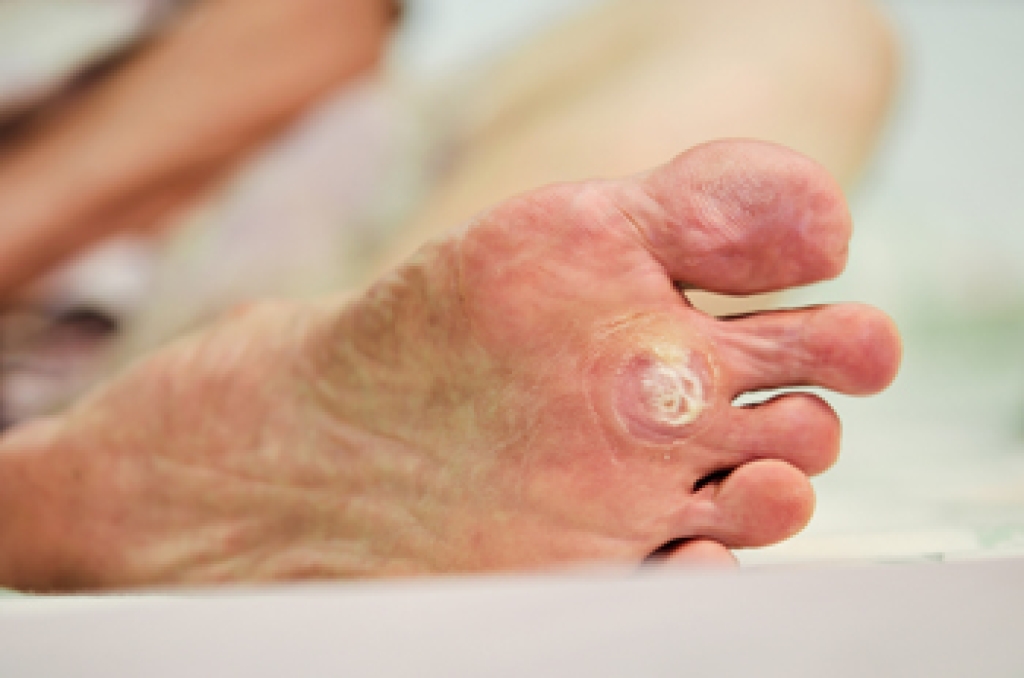
Plantar warts are stubborn growths caused by human papillomavirus, abbreviated HPV, and can be a source of discomfort and frustration. If you are attempting to manage these types of warts, there are effective ways to address them. Over-the-counter treatments containing salicylic acid can help dissolve the warts over time. Alternatively, your podiatrist can use cryotherapy to freeze the warts off. It is important to avoid picking or scratching the warts, as this can spread the virus. To help prevent plantar warts, keep your feet dry and clean, especially in damp environments, such as locker rooms or public showers. Wearing appropriate shoes, such as flip-flops, in communal areas can help to reduce the risk of exposure. If you have developed a plantar wart, it is suggested that you consult with a podiatrist who can guide you toward the treatment method that is right for you.
Plantar warts can be very uncomfortable. If you need your feet checked, contact Dr. Yeon A. Shim from Roselle Podiatry Group. Our doctor will assist you with all of your foot and ankle needs.
About Plantar Warts
Plantar warts are the result of HPV, or human papillomavirus, getting into open wounds on the feet. They are mostly found on the heels or balls of the feet.
While plantar warts are generally harmless, those experiencing excessive pain or those suffering from diabetes or a compromised immune system require immediate medical care. Plantar warts are easily diagnosed, usually through scraping off a bit of rough skin or by getting a biopsy.
Symptoms
- Lesions on the bottom of your feet, usually rough and grainy
- Hard or thick callused spots
- Wart seeds, which are small clotted blood vessels that look like little black spots
- Pain, discomfort, or tenderness of your feet when walking or standing
Treatment
- Freezing
- Electric tool removal
- Laser Treatment
- Topical Creams (prescription only)
- Over-the-counter medications
To help prevent developing plantar warts, avoid walking barefoot over abrasive surfaces that can cause cuts or wounds for HPV to get into. Avoiding direct contact with other warts, as well as not picking or rubbing existing warts, can help prevent the further spread of plantar warts. However, if you think you have developed plantar warts, speak to your podiatrist. He or she can diagnose the warts on your feet and recommend the appropriate treatment options.
If you have any questions, please feel free to contact our office located in Roselle, NJ . We offer the newest diagnostic and treatment technologies for all your foot care needs.

